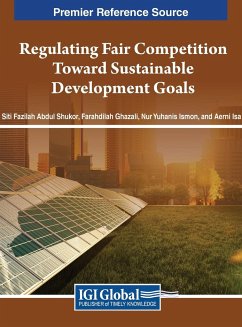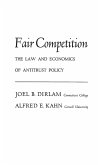The necessity for the fundamental practice of regulating fair competition in a globalized world cannot be overstated. This promotes innovation, productivity, and serves as a safeguard against monopolies that could stifle progress. Regulating Fair Competition Toward Sustainable Development Goals is an insightful and comprehensive exploration of the vital link between competition law and policy and the United Nations' Sustainable Development Goals (SDGs). At its core, this book delves into the crucial role of fair competition in fostering innovation and driving economic growth. By encouraging corporations to continuously seek novel ideas and invest in research and development, fair competition paves the way for improved productivity and cost-effective production. Moreover, this legal framework stands as a bulwark against monopolies, which can suppress innovation, limit consumer choice, and escalate prices. The editors deftly elucidate the importance of competition law and policy in creating an open and fair marketplace that benefits consumers, businesses, and the environment. Bringing together a distinguished collection of academics and industry experts, this book delves into a broad spectrum of topics, including economy, environment, energy, technology, employment, business, and management. By examining various perspectives, the book offers a nuanced understanding of the implementations and limitations of competition law and policy in the context of sustainable development. This timely and significant volume caters to a diverse audience comprising academics, students, policy makers, and government and private research institutions. Furthermore, industry leaders and corporations will find valuable insights on how fair competition can foster sustainable development, making this book a must-read for those seeking to navigate the intersection of competition law and the SDGs.








